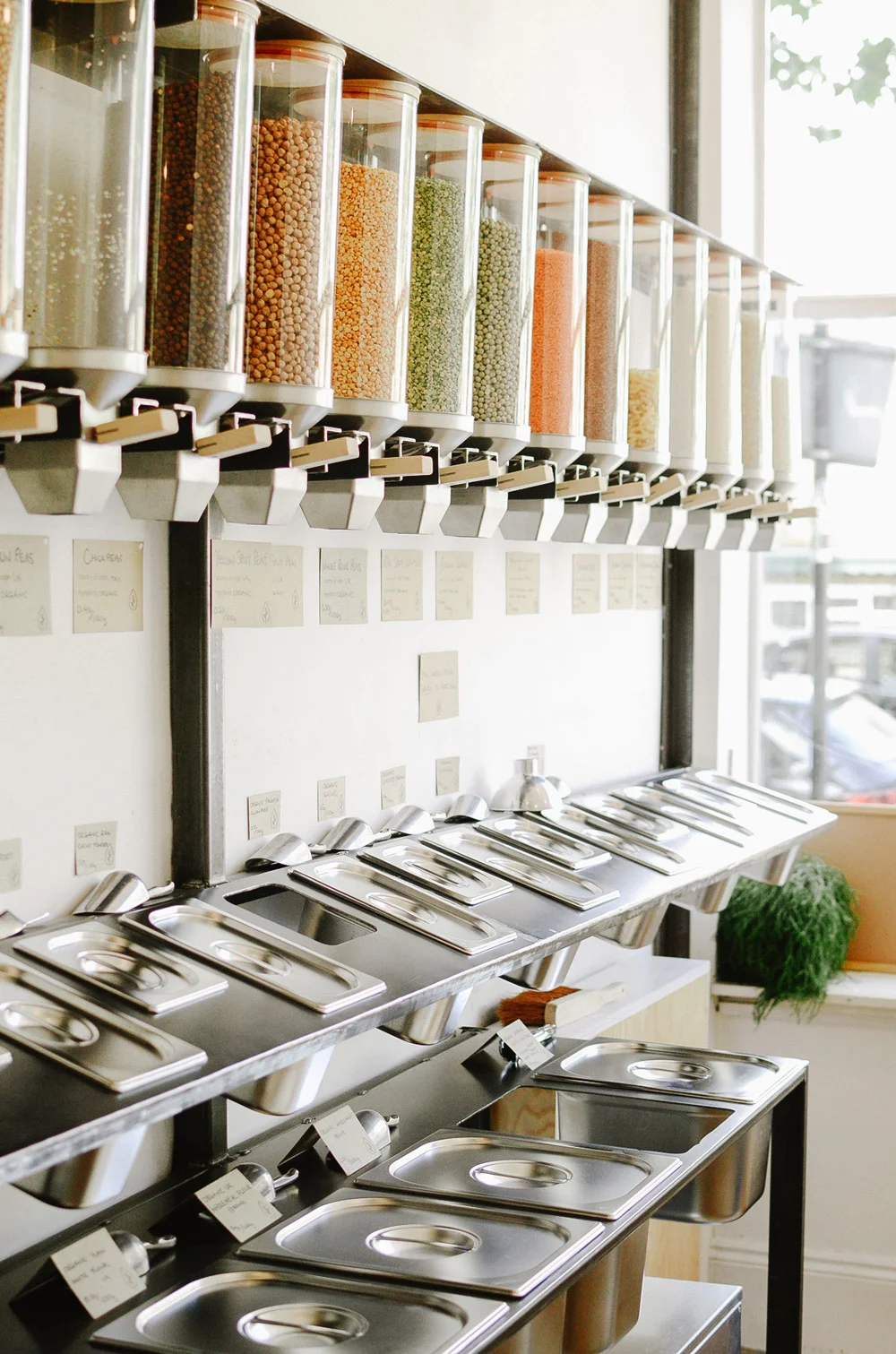Sustainable Living & Shopping in the UK

Sustainable Living & Shopping in the UK
Here you can find your nearest zero waste, bulk stores, vegan markets and restaurants with convenient Google Maps, find out how to recycle your food waste and why that’s so dang important.


Click each pin to see more info. The blue pins are bulk and zero waste stores and the green are restaurants/markets.
Send me your recommendations for the best places to buy things without packaging, your favourite veggie restaurants & ethical/sustainable stores in London.
Follow along on Instagram as I share my experiences & what I’m learning from living a low waste life in London:


Click each pin for more info.
Have I missed anything? Send me your recommendations for the best places to buy things without packaging, your favourite veggie restaurants & ethical/sustainable stores in the U.K.
Unfortunately the UK is rather behind on this front. New York has numerous drop off points where people can bring their food waste, but London is either doing a terrible job of sharing the info, or it doesn’t have any.
Here’s a page with information about why it’s important to separate food waste from general waste for recycling. In the UK alone 600,000 tonnes (41%) of the waste from pubs, restaurants, hotels and quick service restaurants is food waste. A scary number indeed, especially if you consider how much energy and raw materials have gone into producing all that food that ends up in landfill, generating methane (greenhouse gas that is 21 times more harmful to the environment than CO2). Gulp.
If recycled, food waste can be turned into lovely compost, fertiliser & even a source of renewable energy.
It varies depending on where you live, but quite a few councils offer food waste collection from your home. Enter your post code to find out what you can recycle in your area on Recycle Now’s site.
You can also compost at home: in an apartment (worm farms are great for small spaces) or in your garden.
Only buy what you need.
When ordering your meal of choice, ask if any ingredients you don’t like can be left out.
Freeze fruits and veg for smoothies, leftovers and bread to be toasted later.
Dodgy looking veg? Make soup! Also, storing food properly makes it last way longer.
Pashon Murray of Detroit narrates this story of soil and how it could reverse climate change.
Composting is the most important action humans can take to regenerate our planet.
See how food waste is recycled and what it can be used for. This animation shows how food waste is recycled.
Here are two short, entertaining videos to explain in a nutshell why we can’t recycle ourselves out of the waste problem (particularly when it comes to plastic) and how to recycle properly to ensure that easily recyclable things like card, glass and aluminium DO actually get recycled.
Why recycling is not a solution:
Here’s to make sure more actually gets recycled:
If you aren’t able to make it to farmer’s markets or can’t get milk in glass at your local supermarket, there are excellent vegetable box and milk delivery businesses.
We have tried two and enjoyed both of them. Riverford was preferable because it’s organic, but it’s more expensive (understandably) so Oddbox is a great budget option.
Riverford 100% organic fruit & veg boxes. They never air freight and their boxes are returnable so can be used up to 10 times! And across the year, around 80% of their veg is UK-grown. They treat other farmers fairly, agreeing good prices well in advance and always sticking to those prices.
Oddbox is on a mission to tackle food waste. Not all of their fruit & veg is organic, but they save food that would otherwise be thrown away. With every medium ODDBOX you save an average of 7 kgs of veg from going to waste, 14 kg of CO2 emissions (the equivalent of 35 miles driven in a car) and 1,722 litres of water (the equivalent to 12 showers).


Milk and More is great for anyone who isn’t on board with plant based milk, but want to be a little more sustainable. They deliver milk in glass bottles, collect them, sterilise them and reuse them.
A great low waste alternative is to make your own plant based milk. Here’s a fab oat milk recipe and our go-to cashew milk recipe:
INGREDIENTS
1 cup raw cashews
4 cups water, divided
1 to 2 tablespoons maple syrup, honey or agave nectar
2 teaspoons vanilla extract
Dash of sea salt
Pinch of cinnamon (optional)
INSTRUCTIONS
1. Soak cashews in water for 4 hours, or overnight in the fridge. Drain the cashews and rinse until the water runs clear. Add the cashews and 2 cups water to a blender. Start on a low setting and increase the speed until the cashews are totally pulverised.
2. Blend in 1-2 cups more water, your sweetener of choice, vanilla extract, sea salt and cinnamon (optional). If your blender can’t totally break down the cashews, strain the milk through a fine mesh strainer or cheese cloth. Store the milk in a covered container in the refrigerator. It should keep for 3 to 4 days.